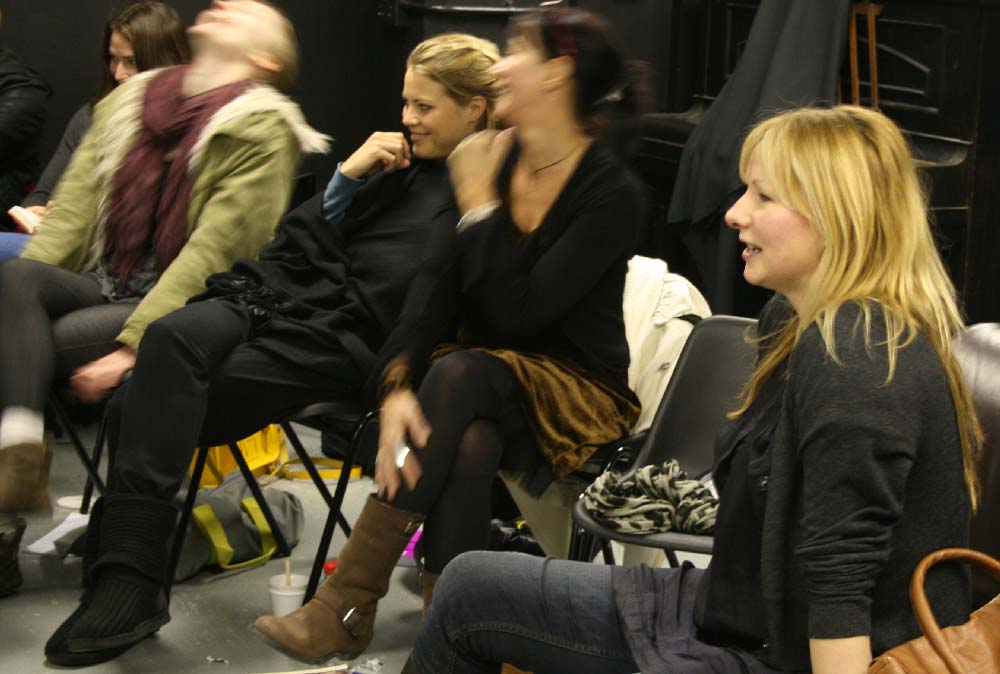
by Bel | Sep 26, 2015 | acting classes, acting classes london, audition classes, audition doctor, auditions, classes for acting, tilly blackwood
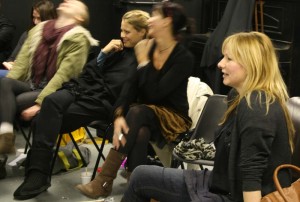 One of the main reasons why Audition Doctor gets so busy in the autumn is down to the fact that many drama school applicants feel that they need help with the demands of Shakespeare.
One of the main reasons why Audition Doctor gets so busy in the autumn is down to the fact that many drama school applicants feel that they need help with the demands of Shakespeare.
In an interview for The Telegraph to promote his and Claire van Kempen’s upcoming production of Farinelli and the King, Mark Rylance spoke of how Shakespeare has become synonymous with academia, classrooms and reading as opposed to live performance.
“Reverence for Shakespeare is very unhelpful,” he continues, “and he wouldn’t have desired that. It’s something that is drummed into you at school. We must not force the theatre into a literary place – in the same way that the Rolling Stones’ Gimme Shelter shouldn’t be studied in a classroom. It’s a song designed to thrill a huge crowd of people.”
Many students have credited Audition Doctor with removing the idea of Shakespeare as being rigid, unintelligible and merely something to “get right and out of the way” so the panel put you through to the next round of auditions.
Mark Rylance went onto say:“You have to tell the story that Shakespeare has written. And you have to tell it as vivaciously as you can in order to win over the audience, otherwise it’s a flat and confusing experience.”
This is why students at Audition Doctor keep up consistent weekly or bimonthly lessons – especially if they are in the run up to drama school auditions. The vivacity that Rylance believes actors should bring to the stage is difficult to achieve without committed practice.
As Michael Fassbender said: “Tiger Woods is Tiger Woods because he practised that fucking swing 100 times a day. Why should acting be any different? It’s just boring repetition, and through that, I find things start to break down, and you start to find the nuances, all the interesting little details.”
To differentiate yourself from the thousands of others, the nuances and interesting little details that emerge through painstaking rehearsal are key. This is what Audition Doctor arms every actor with.
With drama school auditions, the panel want to see your strengths and a taste of the kind of actor you have the potential to become.
Danny Boyle said: “When you start off your career you think there’s only one way of achieving anything, but when you get to work with really experienced actors, they’ll give you alternatives, and emotional differences between scenes. Hot, then cooler so that you’ve got choices in the editing for how the storytelling is emerging. That’s what you get with an actor like Fassbender – he finds variation on multiple takes, rather than just doing the same thing again and again. It is incredible to witness.”
What Audition Doctor gives every student is choice; usually a range of bold options that show the panel that you are capable of experimentation and a gamut of emotional colour.
Aside from drama school applicants, professional actors come to Audition Doctor because the returns are career-enhancing. They recognise that the repetitive and relentless exploration in the sessions is the reason why they get more work.
As Fassbender once remarked: “I’m flavour of the month at the moment, but somebody else is going to roll around the corner in three months’ time. I just want to keep working.”
Those who come to Audition Doctor usually do.

by Bel | Sep 16, 2015 | acting classes, acting classes london, audition classes, audition doctor, auditions, classes for acting
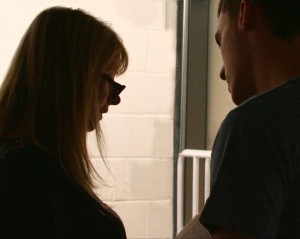 Tom Conti was quoted in the Telegraph worrying over how young actors got started in the industry: “We don’t have rep theatre…That was a phenomenally good start, actors developed stage craft, learnt how your voice worked.
Tom Conti was quoted in the Telegraph worrying over how young actors got started in the industry: “We don’t have rep theatre…That was a phenomenally good start, actors developed stage craft, learnt how your voice worked.
He went onto state: “There’s no training ground at all now. Actors come out of drama school – and I want to say, go and ask for your money back. They have taught you nothing.”
While this is an opinion held by some actors, particularly by those who gained a foothold in the profession through repertory theatre, many actors credit their success to the three years spent at drama school.
Actors such as David Morrissey have been vocal about their support for drama schools, with the latter describing how his training at RADA helped him maintain momentum and longevity in his career.
Morrissey is about to appear in Martin McDonagh’s Hangmen at the Royal Court. When interviewed by the Guardian and asked what is it about McDonagh’s writing that inspires such respect? He replied: “His love of language. You’re reading the script through with other actors and there’s immediately this incredible rhythm, like you’re batting words back and forth. That’s energising in itself, and then you start to pick up on the complexity of the script, all the underlying strands that are threaded through the play in such a subtle, revealing way.”
This idea of understanding the muscularity of the language and the ability to unravel the complexity of the text are what training grounds such as drama schools and Audition Doctor focus on.
At Audition Doctor, the concentrated sessions assure students that they are using the language to communicate character and emotion.
Freddie Fox, due to appear as Romeo in Romeo and Juliet, said: ”I think every actor probably has a little bit of apprehension at the beginning of [their] first Shakespeare. And yet my dad had said to me many times: you will suddenly realise how blessed you are to say those words because Shakespeare makes it very easy for you.”
Audition Doctor’s popularity with professional actors and drama school applicants lies in the way Tilly gives every student the tools with which to overcome obstacles. Although the work undertaken in the sessions is often difficult, the performance itself in front of the audition panel becomes far less daunting and, perhaps unusually for some, enjoyable.
Picking suitable speeches is something that Audition Doctor considers vital for audition success and many come to Audition Doctor for this guidance alone.
Fox recounted his drama school auditions: ”It was awful. I made such a fool of myself! I went into the audition feeling like the Laurence Olivier of the public school system. I did Noel Coward, Bernard Shaw and Oscar Wilde – and they said surely you can do things other than drink tea and speak nicely? So for my second audition I did a piece from [David Mamet play] Glengarry Glen Ross, in my gruffest Pacino voice. Dan looked up at me afterwards and said, ‘That is the most preposterous audition I have ever seen in my life.’”
Thankfully, Audition Doctor students rarely have similar experiences to that because Audition Doctor guides them in choosing speeches and characters that showcase the best of what they can offer.

by Bel | Sep 9, 2015 | acting classes, acting classes london, audition classes, audition doctor, auditions, classes for acting
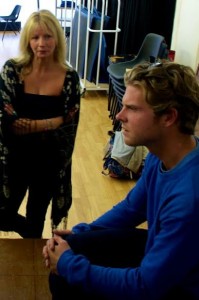 This week, Brian Cox was quoted as saying “The Benedicts, the Redmaynes are very good. But, I look at a lot of young actors and I don’t think they’re very good. There’s a thing that goes on in acting now where they don’t engage, there’s a blandness about them, they’re homogenised…There’s a lot of people who work in television and film who can’t cut it in theatre, they don’t have theatre chops. And theatre really is, for an actor, an actor’s medium. It’s where you exercise your craft.”
This week, Brian Cox was quoted as saying “The Benedicts, the Redmaynes are very good. But, I look at a lot of young actors and I don’t think they’re very good. There’s a thing that goes on in acting now where they don’t engage, there’s a blandness about them, they’re homogenised…There’s a lot of people who work in television and film who can’t cut it in theatre, they don’t have theatre chops. And theatre really is, for an actor, an actor’s medium. It’s where you exercise your craft.”
Lyn Gardner wrote a rebuttal in the Guardian defending the variety and entrepreneurial spirit of today’s actors. She argued that the new exigences of the acting industry demanded much more from its members.
“The old ideas of career progression have disappeared in acting as much as they have disappeared in other professions, too. One of the great things about the younger generation is that they are making their own opportunities, writing and directing and devising and not just sitting around waiting for the call from the Royal Shakespeare Company that may never come.”
Professional actors have found Audition Doctor to be a real help in furthering their craft and avoiding precisely the kind of uninteresting acting that Cox refers to. Consequently, Audition Doctor has proved to be a necessary step in terms of career progression for many actors. The recalls and job offers that Audition Doctor students receive are testament to the bold and unusual creativity that the sessions foster.
Christopher Lee said: “I think acting is a mixture of instinct, imagination and inventiveness. All you can learn as an actor is basic technique.” Those that come to Audition Doctor are building far more than just technique.
Aside from building an actor’s creative development, Audition Doctor offers practical guidance on speech choices as well as more general career advice that is tailored to each student.
Gillian Anderson advised aspiring actors: “Attempt to get an objective perspective of what it is that you individually bring to the table, and foster those strengths, and embrace those strengths. And work really hard.”
Audition Doctor’s popularity with drama school students lies in guiding students in having a sense of where they would fit in the profession and enhancing their natural talents to ensure originality and ultimately, durability in a notoriously insecure profession.
Anderson also stated knowing why she wasn’t cast for jobs was “just as important to embrace. Not just to help with diminishing disappointment, but it infuses one’s experience with a practical nature, which is important to have, to keep sane.”
Many drama school applicants have come to Audition Doctor towards the end of an unsuccessful bout of auditions. After a change in speeches and a couple of sessions, Audition Doctor often successfully manage to help students gain hard-won places.
Audition Doctor sessions encourage hard work and ensures that students are prepared to give believable performances in every medium. Consequently, they are ready for any kind of job that comes their way.

by Bel | Sep 1, 2015 | acting classes, acting classes london, audition classes, audition doctor, auditions, classes for acting
 In a discussion called Is Acting Art? on the programme The Actors’ Roundtable, Christopher Waltz mentioned that while the performance that an actor gives can be called art, it’s the result that makes the art and not necessarily the process that leads to it.”
In a discussion called Is Acting Art? on the programme The Actors’ Roundtable, Christopher Waltz mentioned that while the performance that an actor gives can be called art, it’s the result that makes the art and not necessarily the process that leads to it.”
Nicholas Cage countered this idea and argued that “the happy accidents that happen between lines” that make certain performances spectacular have little to do with craft and a lot more to do with imagination.
Audition Doctor’s indispensability lies in the nurturing of the two. In the same discussion, Stanley Tucci stated: “In order for something to be art, it has to be truthful. Secondly, it has to be individually truthful and it’s that true individuality that makes art.”
Audition Doctor sessions are about creating emotionally detailed characters. The speeches that students work on are helpfully looked over by Tilly to ensure that they are suited to their individual talents.
This is especially useful for drama school applicants. Even experienced actors find it necessary to seek a second opinion. Tamsin Greig recently said: “I’m not brilliant at reading scripts. You would’ve thought I would’ve got better…so I take a lot of advice.”
In an interview with David Hare in today’s Telegraph, Gaby Wood wrote: “In plays from Plenty to Skylight to The Vertical Hour, characters’ emotions are as strong as their beliefs, and the electricity in the dialogue comes from fine tunings of disappointment or misunderstanding. Whole swathes of history can be dredged up in a single room; love can be ignited and lost within minutes.”
Students who come to Audition Doctor consistently find they become less intimidated by such scenes and that their approach becomes far more nuanced and specific.
Benicio Del Toro said: “There’s a science to acting. There are many obstacles that stop you from being good in front of that audience, as there are many obstacles that will make you freeze up in front of a camera. There is a riddle to it that is never the same, from role to role.”
Audition Doctor’s ability to remove the obstacles in an actor’s performance is one of the many reasons as to why Tilly is in high demand.
Del Toro went onto say: “It’s a difficult business, no doubt at all. People don’t realise that. The obvious advice for an actor is to work on acting and question what it is – all the time, everyday. But perhaps the best advice is to work on everything from the basis of theatre. I don’t think there’s such thing as acting for movies – there’s just acting.” This line of thinking is why Audition Doctor’s client base includes actors who are auditioning for all mediums – not just theatre.
Fiona Shaw recounted her experience of playing Electra and said: “Electra made me realise that a play – with the right cast, in the right moment, in the right place – can be like sculpture and painting and literature all at once…People come to the theatre in the hope that it will have something to do with them – and when it touches them, it is both painful and brilliant.”
Those that attend Audition Doctor are encouraged to develop both craft and art; it is the confluence of both that engenders a truthful performance and hopefully a meaningful emotional exchange between actor and audience.

by Bel | Aug 26, 2015 | acting classes, acting classes london, audition classes, audition doctor, auditions, classes for acting, tilly blackwood
 In this week’s Guardian, Christopher Eccleston warned against the waning opportunities for working-class actors. He described this disturbing phenomenon as contributing to a “culture that is resultantly bland”.
In this week’s Guardian, Christopher Eccleston warned against the waning opportunities for working-class actors. He described this disturbing phenomenon as contributing to a “culture that is resultantly bland”.
Despite recognising the excluding nature of today’s tuition fees, he stated: “It is not essential but my advice would always be: go to drama school, treat it as a trade, study it and then apply yourself.”
In an interview for Ideastap, Luke Treadaway stated that although he did go to drama school, he mentioned: “[When] if I meet young actors, I don’t tell them they have to go to drama school. I’ve met a lot of young people on jobs recently that haven’t been to drama school. I’ve been meeting 18 year-olds that have done more stuff than me and have got an agent from a very young age. I think that’s a great way to go…if you have developed your own contacts and you’re finding ways to get work, why mess up a good thing? Keep going with it, because you only really learn when you’re on the job anyway.”
However, getting the job in the first place is why actors come to Audition Doctor. Those that attend regular sessions are able to clearly chart their progression. Many become confident with Shakespeare which has stood them in good stead for drama school auditions most of which require at least one Shakespeare monologue.
Ideastap wrote: “A lot of [Shakespeare’s] speeches tell a story and, often, it shows the panel the intelligence of the actor, because it is quite hard to get that meter right. Although sometimes those monologues can end up being quite mannered and “Shakespearean” with a capital S.
Actors come back to Audition Doctor time and time again because sessions take away any anxieties and make Shakespearean monologues as exciting and relevant as their Modern piece.
Geoffrey Rush who is going to play King Lear in Sydney stated: “Shakespeare asks all the big questions. And for those who say it’s too much, think of it like a great box set of television which people can watch for 20 hours without getting bored. Lear is curiously entertaining.”
Aside from students notching an apparent upward trajectory in terms of their technical and intellectual development when approaching texts, Audition Doctor also encourages actors to be braver in their choices and not to shy away from inhabiting emotional spaces which might expose their vulnerabilities.
Amy Adams recently stated in an interview: “I’ve worked with a lot of actors who go to places that I can’t even imagine. I so respect them but I’ve always been a little too scared to stay there…I don’t like to use the word “brave” because bravery to me is like when soldiers are brave, I don’t know what the word is for actors, I’ll have to really think about it.”
The willingness to take bold decisions and the adventurous fearlessness with which students come to tackle scripts under Tilly’s tutelage is one of the many reasons for Audition Doctor’s continuing indispensability towards professional actors.

by Bel | Aug 19, 2015 | acting classes, acting classes london, audition classes, audition doctor, auditions, classes for acting, tilly blackwood
 This week, Lyn Gardner wrote of an experience she had at the Forest Fringe: “I had one of those moments in the theatre when it feels as if you have seen something that was made just for you. They don’t happen often, but when they do, it is as if the artist has glimpsed inside your heart and mind, and made a gift just for you. One that you will carry with you…But it isn’t the case that such a performance will speak to other people in the same way it speaks to you…art isn’t fixed, it’s malleable, plastic and shape-shifting.”
This week, Lyn Gardner wrote of an experience she had at the Forest Fringe: “I had one of those moments in the theatre when it feels as if you have seen something that was made just for you. They don’t happen often, but when they do, it is as if the artist has glimpsed inside your heart and mind, and made a gift just for you. One that you will carry with you…But it isn’t the case that such a performance will speak to other people in the same way it speaks to you…art isn’t fixed, it’s malleable, plastic and shape-shifting.”
The flexibility and spontaneity that theatre offers an actor is also the reason why actors who are preparing for television or film roles come to Audition Doctor. The live response to their work and artistic choices are an important part of the development of their craft.
In an interview about Robin Williams, Ethan Hawke mentioned: “Some actors have a plan: “This is what I’m going to achieve in this scene” and you can usually smell it which means you’re not watching creativity but a kind of re-creativity. Like “I cry on this line” and sometimes it’s quite good. But with Robin, he had no idea what was going to happen….All the best performers I’ve ever worked with create their own vibration of spontaneity.”
However, Hawke was also quick to say that spontaneity only emerged out of a wealth of preparation and attention to detail.
“Peter Weir used to say that the difference between being good and great is like one twist of the screw but it’s the hardest one to do…so much rehearsal, so much thought needs to go into the tiniest gesture that ultimately needs to be spontaneous and can’t even be planned out.”
Audition Doctor offers this level of both research and rehearsal, which consequently often gives rise to the twist in the screw that Weir speaks of. Furthermore, the engagement of heart as well as head that the sessions encourage mean that the character you create is true to the text.
Hawke said in the same interview: [Every kind of art, not just acting] is like a sailboat, Every true moment, every beautiful thing, every honest thought puts wind in the sail. Every fake moment every cheat, every lie is a little tear. If you have a few tears, the ship will still move. But to make The Godfather…there’s got to be no tears. How many can we get rid of? How much truth can we put in the sail? If we can do that we can make something really beautiful.”
Actors come to Audition Doctor because they find that the more sessions they attend, the fewer tears there are in their performance. Getting rid of them takes regular practice and commitment, however, students find that it pays off because they put themselves in the position where they are closer to giving an audience the experience that Gardner speaks of.

by Bel | Aug 12, 2015 | acting classes, acting classes london, audition classes, audition doctor, auditions, classes for acting, tilly blackwood
 In an interview for BAFTA, Imelda Staunton spoke of the importance, for her, of being able to fail on the job after drama school. Repertory theatre afforded her the opportunity to continue to mould herself into the kind of actor she wanted to be.
In an interview for BAFTA, Imelda Staunton spoke of the importance, for her, of being able to fail on the job after drama school. Repertory theatre afforded her the opportunity to continue to mould herself into the kind of actor she wanted to be.
“I remember thinking that I didn’t want to go to the RSC and stand at the back. I wanted to be at the front making a fool of myself. I didn’t care as long as I was doing it. I was given a lot of responsibility when I was very young. I was 20 when I left RADA and I went straight into a leading role. I wasn’t very good at it but I was giving it my best shot and really learning my craft. I certainly didn’t come out fully formed when I left drama school.”
Audition Doctor gives actors the similar chance to advance their technique and artistry albeit in a less public setting.
Sarah Frankcom, who has directed Maxine Peake in Hamlet, spoke of the need for actors today to manage their own careers: “[Peake] is part of a generation who are having to shape their work and opportunities in a different way, and that is about taking control rather than serving an industry.”
With the demise of repertory, actors today are increasingly looking towards spaces such as Audition Doctor to avoid stagnation between jobs and to forge ahead with their professional development.
Actors value Audition Doctor sessions because they endow them with the ability to tell a story which, at its most basic definition, is an actor’s job. Tilly’s students are often successful in auditions for simply being true to the part and not embellishing it with any falsity or “acting”.
As Staunton said: “You’re privileged enough to dive into someone else’s life and tell their story. That is your only responsibility; not to make it bigger than it is or more extraordinary than what it is, it’s just what it is…Doing it in the moment is the most important thing.”
Staunton also went onto mention: “ [When rehearsing] Entertaining Mr Sloane the language is difficult and technically it’s quite difficult. I thought [my character] had terrible problems and she needs delving into in my head. That was for me to do work on in my own time. not discussing in rehearsal “Oh what do you think she’s feeling?” That’s my job. I do that privately.”
Audition Doctor has proved indispensable for those applying to drama school who understandably need guidance with mastering difficult texts and also the private work that Staunton speaks of. Audition Doctor’s students have proved that they are remembered in the right way by audition panels – for serving the role authentically and not for any artistic choices that might be perceived as attention-seeking.
Sarah Frankcom said of Maxine Peake: “Her great gift is that she makes you feel like she is going through something. She helps an audience makes sense of what is happening between people.”
This is what Audition Doctor helps all her students achieve and pushes them closer to following Peake’s own mantra about acting: “Just be honest, be interesting, be alive.”

by Bel | Aug 5, 2015 | acting classes, acting classes london, audition classes, audition doctor, auditions, classes for acting, tilly blackwood
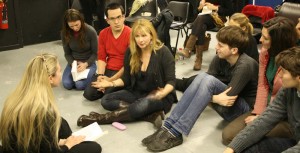 Last week, the Independent featured an article about Benedict Cumberbatch’s upcoming Barbican production of Hamlet. While it acknowledged that “Hamlet stands at the pinnacle of the actor’s art for its emotional and intellectual range”, it focused largely on the 1,480 lines that Cumberbatch will have to commit to memory.
Last week, the Independent featured an article about Benedict Cumberbatch’s upcoming Barbican production of Hamlet. While it acknowledged that “Hamlet stands at the pinnacle of the actor’s art for its emotional and intellectual range”, it focused largely on the 1,480 lines that Cumberbatch will have to commit to memory.
Michael Pennington said: “It is the question that everyone asks at a party. It defines the job; it’s the bare necessity. But it’s still the thing that amazes other people.”
Lenny Henry found writing out the lines of his scene 10 times useful, while most other actors followed the “repetition repetition repetition” method.
Whichever method they chose, all came to the consensus that “the key to mastering lines is not to treat them as lines, but as the ingredients of a character and a story. Grasp the total meaning, and the words will swiftly follow. For Michael Pennington, “You come to know the character that much better. It’s like the engineering of a car: you get to see what goes on under the bonnet. It’s a matter of cosying up the author – you see how they do it, and you develop a feeling for the music of the language”.
Audition Doctor lessons are about getting into the mechanics of the text and to cultivate the linguistic and emotional confidence that comes with spending time living your character. Many Audition Doctor students initially come to Tilly for help with Shakespeare because initially they find it difficult to get to a place where they feel like they are using the language effectively to communicate their character’s intentions.
This week, West End Producer commented on his blog: “One mistake that many new performers make is trying too hard to ‘stand out’ and ‘be different’ so they’re remembered in an audition. Chances are when you do this you stick out for all the wrong reasons, namely for being over the top, desperate, and unnecessary – which is exactly how you don’t want to appear.”
Audition Doctor students have found that sessions have resulted in the right kind of attention at auditions; the work undertaken at Audition Doctor is all about furthering your understanding of the role you are playing, as opposed to yourself.
Bryan Cranston advised young actors: “Know what your job is. About eighteen years ago I had this cognition that I was going into auditions trying to get a job and that simply wasn’t what I was doing. It wasn’t what I was supposed to be doing. An actor is supposed to create a compelling, interesting character that serves the text, you present it in the environment where you audition and then you walk away and that’s it….There’s power in that and there’s confidence in that. Everything else is out of your control.”
Audition Doctor gives students the peace of mind of knowing that they have done all they can to do their job well. Those who come regularly have also noticed that they land jobs simply because the lessons have enabled them to continue their training.
As West End Producer said: “Work leads to work, it really does. That awkward person who directs you in a profit-share show at the Union could one day be running the National Theatre. You never know. And by doing work, you will be surrounded by other actors and meet other creatives – and that’s how you find out about what’s going on and who is casting what, etc.”
The stress on all actors, regardless of whether you are playing Hamlet, is significant and as the Independent article rightly stated: “Every night, [an audience] expects art, practice, training, teamwork and trust to fuse seamlessly into a note-perfect or line-perfect rendition.”
Audition Doctor is popular with professional actors because regular practice and exploration in the sessions takes a large amount of the pressure off.
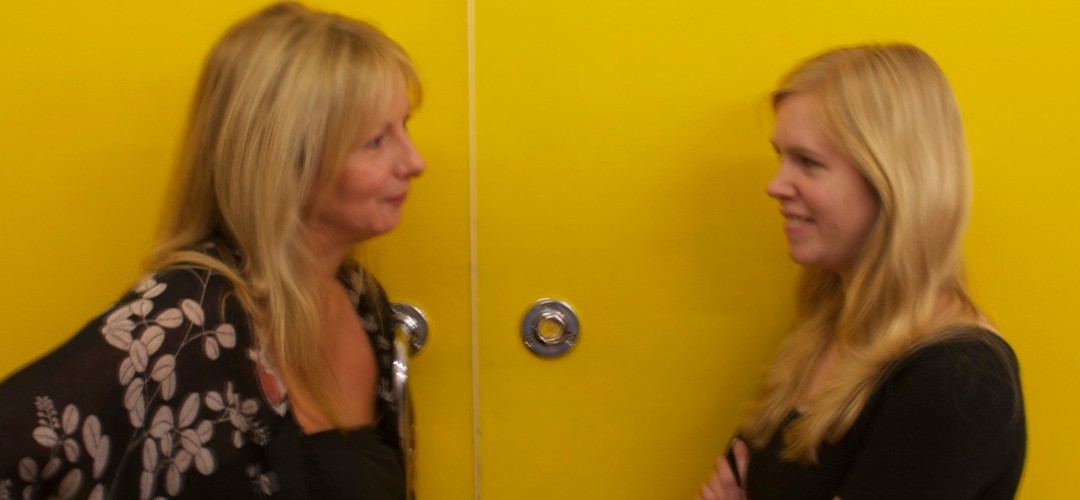
by Bel | Jul 29, 2015 | acting classes, acting classes london, audition classes, audition doctor, auditions, classes for acting, tilly blackwood
 In the Guardian, actors Rory Kinnear and Anthony Sher discussed their different approaches to playing Iago.
In the Guardian, actors Rory Kinnear and Anthony Sher discussed their different approaches to playing Iago.
Kinnear commented: “Nick Hytner’s first instinct was always to steer away from racism and examine that jealousy” while Sher decided from the outset: “We definitely wanted him to be racist.”
What is immediately apparent is that the depth of research and rehearsal that each actor undertook led to nuanced and rich performances that differed hugely.
Kinnear said: “With a lot of Shakespeare’s characters, something seismic has happened to them just before we meet them. Hamlet has lost his father. Angelo jilts Mariana in Measure for Measure. Iago suspects that Othello has slept with his wife. As an actor, you have to know who that character was beforehand in order to understand how they’ve changed.”
From both actors’ accounts, the analysis and quarrying of the play to understand Iago’s mental make-up appears to be extensive; there is a constant questioning and determination to drill deep into the character’s psyche.
Sher said: “Words such as “evil” and “villain”, they don’t mean much to me as an actor. They seem to hark back to a time when we knew nothing about psychology, and I’m far more interested in thinking about those people as damaged in some way that leads to their actions.”
Professional actors and drama school candidates attend Audition Doctor sessions because the environment that Tilly provides allows for a forensic exploration of character. It’s a rare situation where you are not spoon fed any “answer”, but are encouraged to organically find your own way into the character.
Lupita Nyong’o once said of her experience of working on 12 Years A Slave: “Every single role brings with it an ignorance and an insecurity, and so you have to approach it with the same curiosity and humility. I’m always nervous. Doesn’t matter how many times I do this. But I remind myself it’s because I care. Steve [McQueen] would say, ‘Fail and then fail better!’ And that environment was so liberating. It’s not about getting it right. It’s about getting it truthful.”
This is the similar ethos employed at Audition Doctor. Students who come to Tilly’s sessions often land jobs or places at drama schools not because their performances in front of audition panels are so polished and “finished”, but because there is always an honesty, rawness and daring in their acting that is unavoidably watchable.
Kinnear said: “You have to implicate the audience. They’ve got to squirm, not just over what happens [in Othello], but because they did nothing about it. They had all the knowledge – this guy was not to be trusted – and they just sat there.”
Students who have trained at Audition Doctor understand this. Sessions push them to reach these stakes and bring a grit and fearlessness to their work.
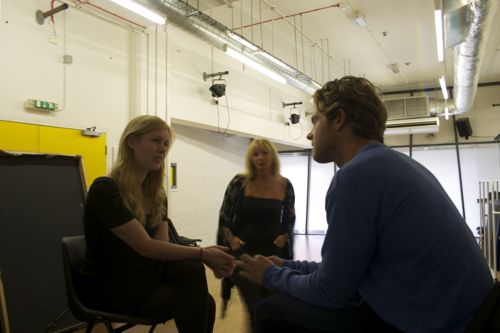
by Bel | Jul 22, 2015 | acting classes, acting classes london, audition classes, audition doctor, auditions, classes for acting
 Speaking of the importance of acting training, Hugh Jackman has said that his experience of drama school was a lesson in “being awake”. He credited his training with giving him the abilities of “being present” and “the importance of listening” – tired stock phrases that are unfailingly trotted out when describing acting, yet are concepts that are the crucial ingredients for a performance that has the power to affect an audience.
Speaking of the importance of acting training, Hugh Jackman has said that his experience of drama school was a lesson in “being awake”. He credited his training with giving him the abilities of “being present” and “the importance of listening” – tired stock phrases that are unfailingly trotted out when describing acting, yet are concepts that are the crucial ingredients for a performance that has the power to affect an audience.
Jackman expanded on the importance of these disciplines: “You do eight shows a week and if you’re not awake that thing is going to be stale by the fifth show and then the rest of the year is going to be horrific and the most turgid experience of your life and for the audience. It has to be as if for the first time.”
The difficulty is that acting as if it were the first time takes a consistent amount of repetition, preparation and practice which is why Audition Doctor has proven essential for both professional actors and drama school applicants.
The type and length of training for each actor obviously varies. As Edward Kemp, Artistic Director of RADA, said in The Stage: “Some students are absolutely ready to go part-way through the third year,” says Kemp. “I was more than happy to release Jessica Raine, for example, in my first year here because she was completely ready. On the other hand, some students get an offer and want to go but it isn’t right for them. We can see they need that final term. It’s too soon and can seriously hold a career back later. I’ve seen it both as a teacher and from the industry end too.”
At Audition Doctor, those that tend to frequently land jobs are those who have regularly attended sessions. The sustained preparation at Audition Doctor sessions means that at auditions, they have the confidence that comes with being more technically experienced.
Kemp also said that he wished someone had told him to “Make more mistakes” when he was starting out. Audition Doctor’s popularity lies in the fact that students not only feel encouraged to make mistakes, but to build on these “failings” and to explore why particular decisions didn’t work as well as others.
Billie Whitelaw once said that actors, herself included, “usually [painted] something on…instead of allowing something to grow from a centre…A lot of that is because there isn’t time to do anything else…but the closest thing I’ve come to using whatever hangs in the middle of one’s diaphragm here has been working with Beckett where I hadn’t eliminated myself but had actually exposed my centre, which is still and full of energy and power, but you can’t act that. It all sounds very pretentious but it is very moving and it does connect.”
Students come to Audition Doctor because they know that sessions push them closer to getting to their own centre and that it gives them the time to really dig into the depths of the character, and consequently avoid giving a one-dimensional performance.
Whitelaw said of Beckett: “He would say “too much colour, too much colour” and what he meant by that was “don’t act”.
Students who come to Audition Doctor find that they come closer to giving the unforced and truthful performances that Beckett spoke of.

 One of the main reasons why Audition Doctor gets so busy in the autumn is down to the fact that many drama school applicants feel that they need help with the demands of Shakespeare.
One of the main reasons why Audition Doctor gets so busy in the autumn is down to the fact that many drama school applicants feel that they need help with the demands of Shakespeare.


















